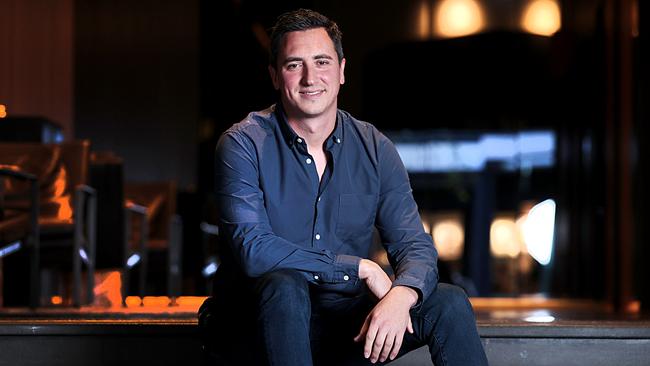Artificial intelligence helping banks hang on to borrowers
Banking technology company Elula has done deals with some of Australia’s biggest lenders to offer a suite of smart systems to help banks manage their most challenging customers.

Artificial Intelligence isn’t coming to mortgage broking – it’s already here.
Sydney-based banking technology company Elula has done deals with some of Australia’s biggest lenders to offer a suite of smart systems to help banks manage their most challenging customers.
At the core of Elula’s suite is its AI-based system “Sticky”, which aims to predict when a bank’s customer is about to refinance.
The Sticky system takes a holistic look at a customer, their transactions and data in a bid to predict if a borrower is about to refinance a loan. Elula co-chief executive Josh Shipman said the benefit of AI-powered systems in banking was clear – the savings through retaining customers.
Banks now had an opportunity to apply “smart machine learning” across their datasets and stop lending churn.
“It’s a really hard problem to solve,” he said. “It’s like looking at the needle in the haystack.”
Australia’s banking industry is part way through refinancing about $478m of mortgages due to expire by the end of the calendar year.
With home loan growth slowing in the wake of 12 Reserve Bank hikes to the cash rate, competition for business is tough, while many borrowers are facing jumps of around 4 per cent in their monthly repayments.
Mr Shipman said the current fixed rate roll-off made the need for a smart approach even greater. “Today it’s very rudimentary – the banks don’t really know who’s going to churn,” he said.
“The first time they find out about that is when the loan discharge forms come in.”
Mr Shipman said lenders, on average, lost 5-10 per cent of their customers each year to churn, but the fixed rate roll-off of borrowers from pandemic low rates to higher variable rate mortgages was increasing these numbers.
Lenders were now facing 7-10 per cent churn, with some lenders known to be facing as much as 21 per cent.
But he said lenders were too quick to panic about the fixed rate roll-off.
“The common mistake we see is really going with a reactive approach,” he said.
Meanwhile, Mr Shipman said, some customers who never intended to change their lenders were being alerted to the option by banks who had a counter-productive approach.
Elula instead ranks customers by specific criteria. These include loan expiry dates, the types of products borrowers are on, whether disposable income has increased, and whether they have had positive or negative experiences with their lender.
Sticky then determines the best approach for the bank.
Mr Shipman said in the past bank branches may have taken somewhat similar approaches to their customers, but the death of transaction banking in local branches had severed the connection between customers and their bankers.
He said “conversations about better looking after the customer and better servicing the customer” were key to retaining borrowers.
“The quality of the feedback we hear is amazing,” Mr Shipman said.
In response to the success of its Sticky product – more than 20 banks and lenders have taken subscriptions – Elula has also rolled out a “Nudge” product aimed at telling banks which of their clients might be open to more products.
Mr Shipman said Elula users included AMP, Suncorp Bank, several mutuals, a tier one bank and its subsidiary.
High-profile financial backers include CBA’s former chief executive Ian Narev and Arnold Bloch Leibler managing partner Paul Rubenstein.
At its latest raising, property settlement platform PEXA took a 25 per cent shareholding in Elula.
Elula is now considering rolling out a third product which would allow its users to calculate the kinds of discounts banks could offer to customers to retain them, as part of the Sticky-driven process.
Mr Shipman said pricing was really important for banks, but for many it was a blunt exercise.
“What we’re really delivering is focusing on how AI can deliver better experiences across lending,” he said.
“AI is an amazing opportunity to deliver much better customer outcomes.”
Mr Shipman said the success of Elula showed the possible uses for AI-powered models in insurance.
“The key thing is to date we’ve focused very much in the home lending space but there’s a huge opportunity to drive Elula’s capability across multiple sectors,” he said. “We’re also looking at international expansion across New Zealand, UK and Canada.”






To join the conversation, please log in. Don't have an account? Register
Join the conversation, you are commenting as Logout